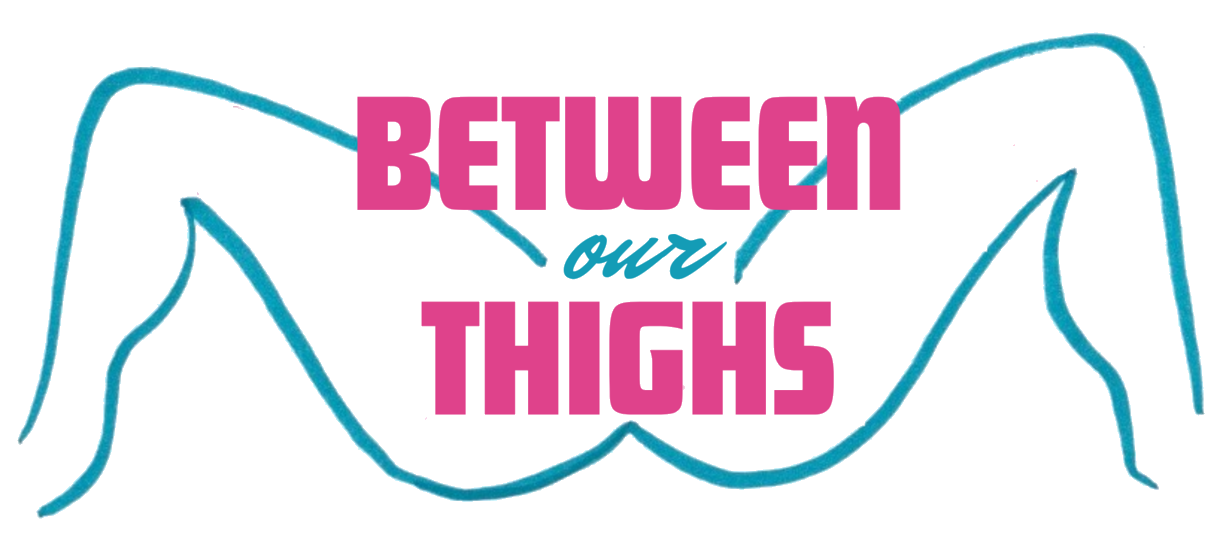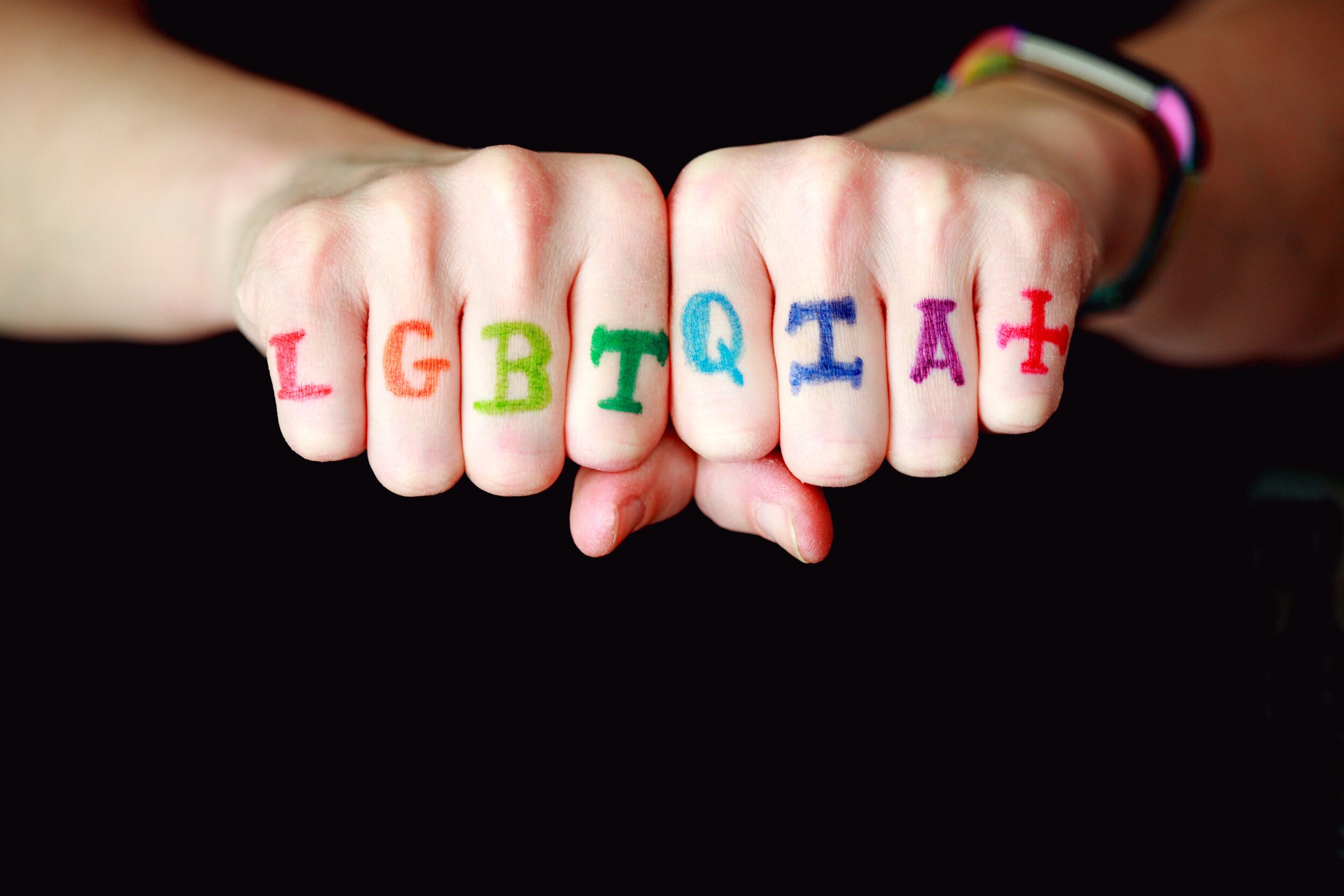Can We Really Accept the Experience Comparison of Queerness to Kink?
Should someone who has more than one kink or fetish be grouped in with the LGBTQ2S+ community, based on this fact alone?
While both the kink and queer communities have the experience of being marginalized (and both can encounter shame and stigma from folks outside of the group), does this mean that they are one and the same? Some say “yes,” but others disagree. Today, we’re sharing the opinions of five people, including sex specialists and folx in the queer and kink communities, to help us gain a deeper insight into perhaps finding an answer to this question.
A.J.
Member of the queer community
While I don't think that queerness and kinkiness are one and the same (although, yes, a queer person can also be kinky, but it does not cause the other), I'm not opposed to kinksters identifying as part of the LGBTQIA+ community. At the end of the day, we all experience some form of ostracization based on sex. For us queer folx, it's who we are sexually attracted to. For kinksters, it's what they are sexually attracted to. The bottom line is that whether a person or an object/sex act, someone can't help what turns them on.
I know that this opinion may seem controversial to some, but I don't believe that kinksters are comparing themselves directly to the struggle of the queer community directly; rather, they're drawing similarities and suggesting that we fight the 'good fight' together. Honestly, I'm all for that because we can always use extra bodies backing us up, particularly those who have some semblance of understanding of what it means to be shunned by social norms.
Of course, I can go on about how 'norms' aren't really normal, but I'll instead sum it up with this: despite anyone in the kink community not necessarily being lesbian, gay, bi, transgender, queer, etc., it doesn't mean that they don't understand what it means to be on the downcasted end of society. As a group, I think we can benefit by banding together to lift one another up instead of doing so separately.
Nita E.
Founder of Luxemeo
Short answer: In my opinion, no.
Long answer: As a member of the LGBTQ+ community and the kink community, while prejudice is experienced on both sides, the identities are not at all the same. Historically, some of the BDSM scenes were created by the LGBTQ+ community, but kinks and fetishes are what turn you on, regardless of your dynamic with who you are playing/engaging in a scene with. How you identify in the LGBTQ+ community goes beyond what turns you on and sexual acts that please you. It’s about how you navigate experiencing this world in regards to your relationships, civil rights, and at times, just existing safely.
This does not mean [that] I want to undermine the struggles of the kink community in any way. The issues that are faced should be acknowledged. However, I can walk around in public with a collar/choker on or have handcuffs on my wrist and not fear for my safety. I may or may not (depending on where I am) receive a few questionable looks, but I don’t have to second guess if I will be in danger. On the other hand, I must be aware of where I am at all times, for the safety of my same-sex partner (especially if she is masculine-presenting) and myself, solely for how we can be harassed, targeted, and experience violence.
While having a kink or fetish can be shamed by others if they are made aware of it, a kink is what turns you on. Your kink isn’t defined by your sexual orientation or how you identify beyond that.
“Mr. Micro Cuck”
Member of the kink community
Does ‘kink’ belong in LGBTQIA+? In my opinion, the answer is nuanced.
When you examine each category of LGBTQIA+, you will see that the people it represents share one critical aspect: they are a traditionally marginalized group, and still are today. People who enjoy engaging in kinky sex or entertain particular fetishes have not experienced a history of systemic oppression for this reason alone (unlike existing subgroups of LGBTQIA+). Because of this, it would be difficult to combine the two and add a ‘K’ into LGBTQIA+. However, the case can be made that those who would openly practice their kinks require a place on the LGBTQIA+ spectrum because archaic, repressive social norms encourage ‘polite’ society at large to ostracize those who partake in their and their partner’s kinky yearnings.
Many kinks are widely considered taboo in communities around the world, such as bondage and exhibitionism. As the owner of a micropenis who enjoys cuckolding and small penis humiliation, it is unreasonable for myself to be expected to go public with those personal details, as the shame from friends and family would be unbearable. Word spreads quickly, and I’d soon find myself to be a sort of social pariah. With that in mind, I believe kink has a place on the spectrum, on the condition of a set hierarchy.
The social consequences of coming out as a kinkster pales in comparison to those of the classic LGBTQIA+ subgroups, but do ultimately belong, albeit at a lower tier. I would find it fascinating to see how that would be structured, and by whom within the community. I believe this is an inclusive solution, while still respecting gay, lesbian, queer, and transgender people’s greater struggles. At the end of the day, we are all stronger if we stand together for each other as one united coalition, to challenge exclusion and the rising threat of the far-right.
Amanda Moser, MS, cFLE
Sexologist at Weed Love Sex, LLC
Let's be clear, while I am a sexologist, I do not claim to be an LGBTQ2S+ or kink expert. Also, it is important to point out that having a kink/fetish and identifying as LGBTQ2S+ are very different.
LGBTQ2S+ typically stands for lesbian, gay, bisexual, transgender, queer/questioning, two-spirit, etc.; this acronym changes over time due to increasing inclusivity. Each letter identifies various sexual orientations, besides transgender (gender identity/expression is not the same as sexual orientation).
Kink/fetish is a generalized term regarding sexual desires people have.
However, sexual/romantic attraction is not a kink. For instance, being gay is not a kink. It’s also important to point out that typically, people consider sexual acts a kink or fetish if it is nonconventional or ‘vanilla.’ Some kinks are more controversial than others, though this is a subjective opinion, as one person's sexual desires may not correlate with someone else's (and that’s okay!!).
While I agree that both groups experience shame and guilt, people who identify as LGBTQ2S+ experience a different stigma than those with kinks. LGBTQ2S+ are more at risk of a safety concern as it’s more obvious in public (e.g. holding hands with your partner, etc.). A sexual kink or fetish could be kept as personal information and the only people who would know are your sexual partners. People who identify as LGBTQ2S+ typically have a ‘coming out’ process in which family, friends, and others learn that they are not heterosexual — this is generally not the case with kinks/fetishes.
While individuals of both communities may experience similar internal struggles with their true sexual self, kinks/fetishes are sexual desires and those who identify with LGBTQ2S+ are sexual orientations.'
M, A Monkey
Producer at Benefit Monkey
As a monkey, I’m full of kink and fetish (i.e., bananas… you know what I mean!), so I think I can give you my idea about it. Of course, this is the opinion of a single, little, ethical monkey. It’s not such a big deal.
Let’s start with this: imagine someone who lives in a bubble… or a tree. This little monkey is openly sex-positive, and it has many sexual habits that many other monkeys find weird or scandalous. It is looking for a community that accepts it. A community where it can express itself and fight for its rights. It hear about a community that does this in the human world. A group where people celebrate diversity and fight against moralism, phobias and cultural pressures that are widely common in the larger society. It comes to the world as we know it. It wants to be accepted; It wants to be itself.
Okay, now that we have this little monkey in our mind, we can imagine what it finds in our society. It is a surprise to find that it has to fight again, even inside this community that should be a safe (mind)place. Why? Why someone (not everybody! This is very important!) don’t want a kinky monkey beside him/her to fight and live?
Given that, our monkey starts questioning itself: Should I be accepted just for my habits? Or shouldn’t I? What is this fight about?
Well, for this monkey, the answer is “tags”. An actual open culture accepts everyone with his/her/its diversity. Actually, it should not even exist “diversity” because if everyone is accepted for how it is, everyone is “normal”. This is a utopia, of course. But as monkeys, we are against tags. Against everything that tags one of us as “unusual”. So: Should someone who has more than one kink or fetish be grouped in with the LGBTQ2S+ community, based on this fact alone? Yes, it should be until he/she has respect for any other habits and behaviour. Respect everyone and accepting him/her as he/she is.
Should subculture exist? No, it must be culture, period. Culture must be open and non-discriminatory. That’s the point: no tags, no diversity, no “weirdos”, just humans…and some monkeys.
Evidently, both kink and fetish, as well as the LGBTQ2S+ communities, have a shared experience of being marginalized by those outside of their respective groups. Both can encounter shame, both can encounter stigma, yes, but does this mean that they are the same? Are their experiences so comparable, that they can be lumped under a single umbrella of an acronym? As is clear through the opinions expressed above, some believe that this would be beneficial, while others are firmly against this notion.
While this grouping has not yet officially occurred, it’s a question that folks can explore and consider.
Do you believe that someone who has more than one kink or fetish should be grouped in with the LGBTQ2S+ community, based on this fact alone? Should kinksters and the queer community be separate? Let us know your thoughts in the comments below.




